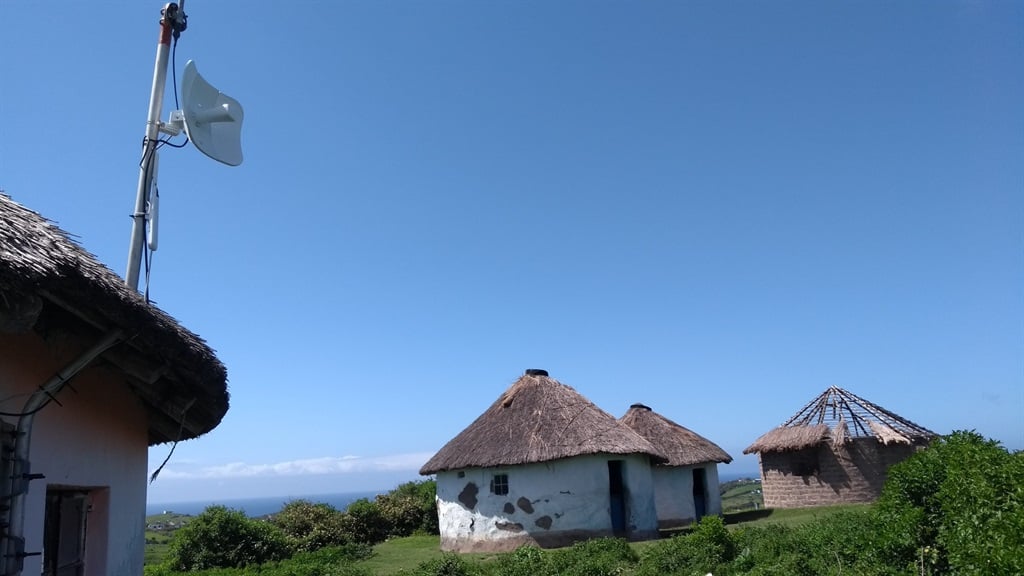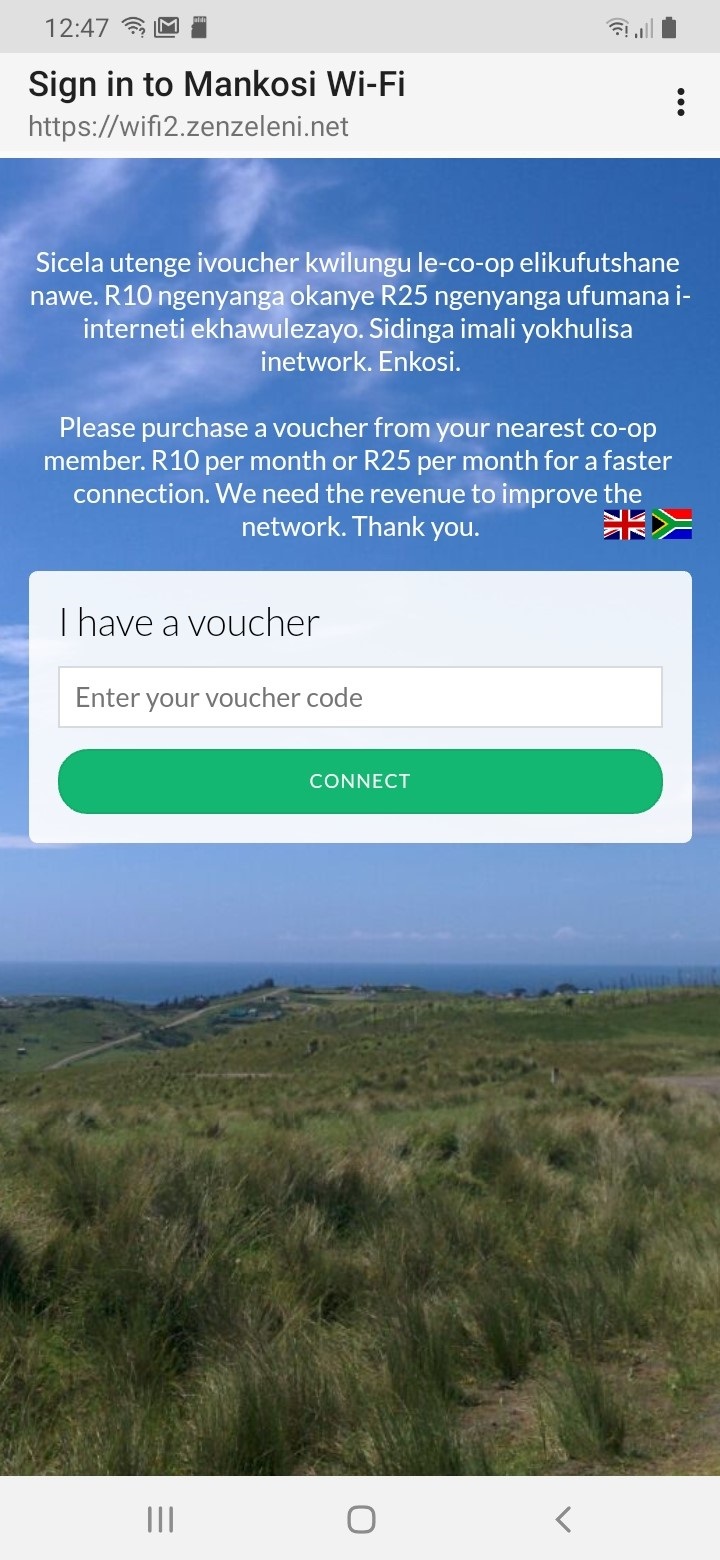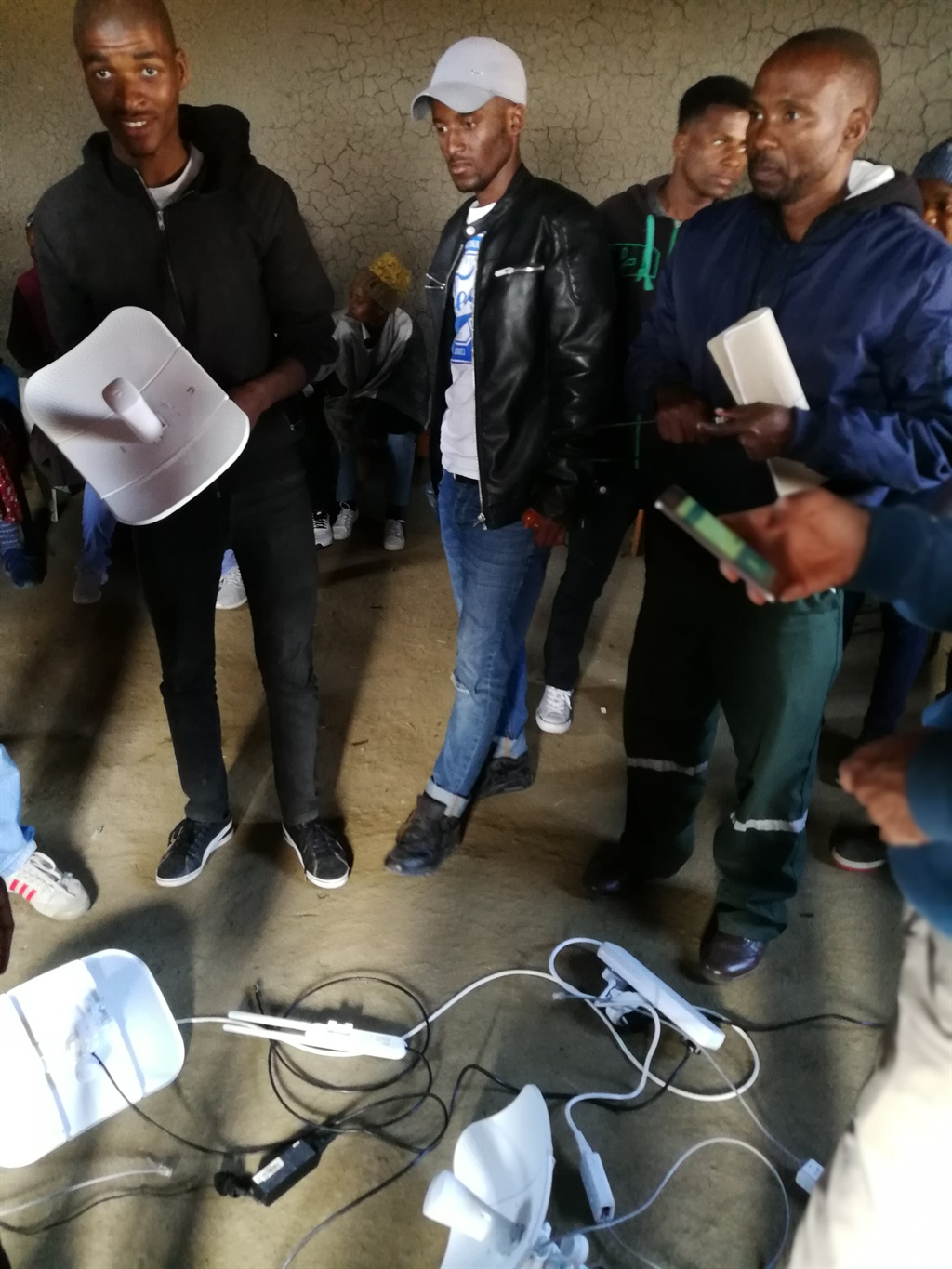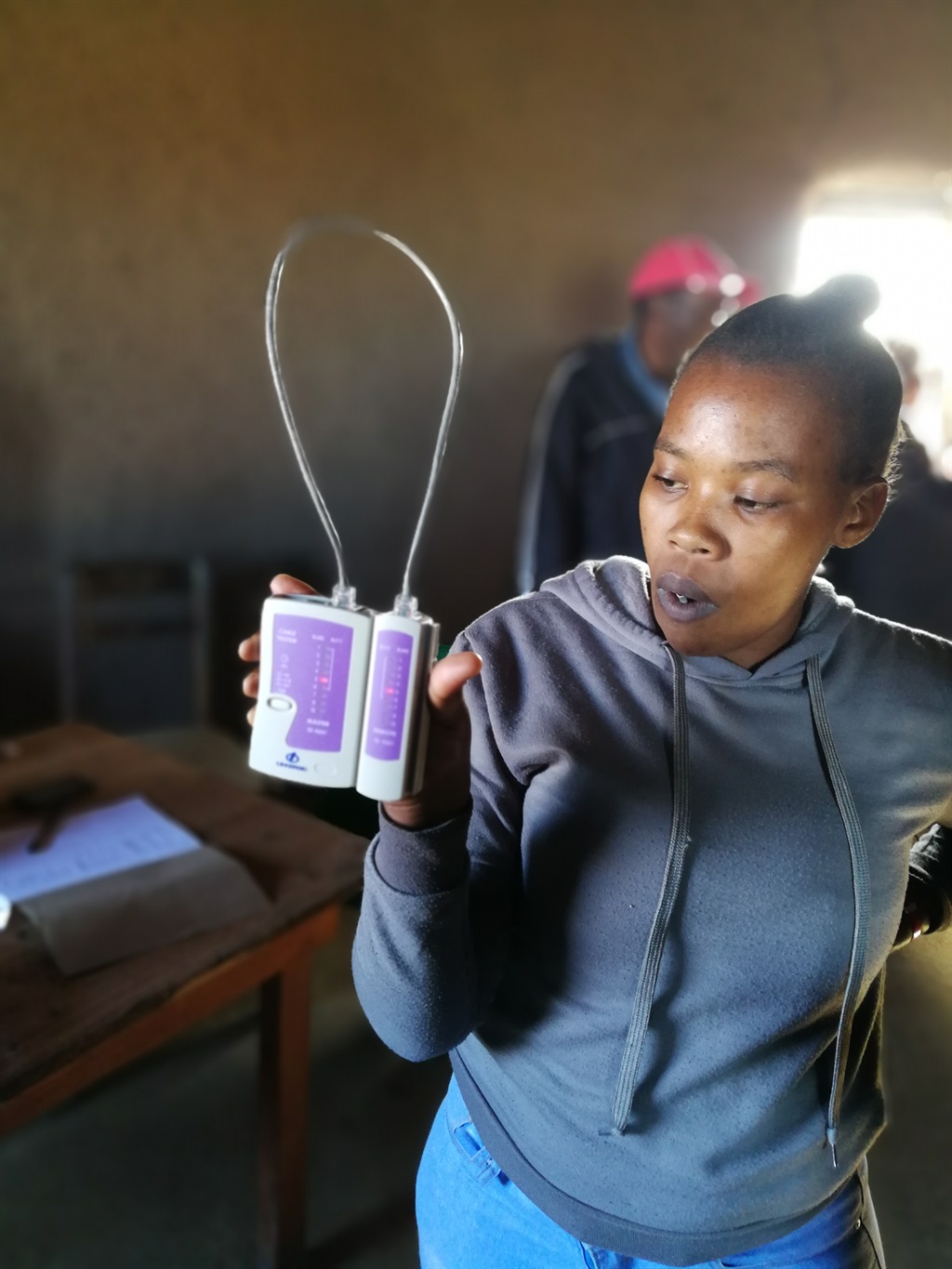
- Cooperative-owned internet service providers (ISPs) in rural Eastern Cape are giving three small villages access to affordable uncapped wifi.
- The ISPs offer internet speeds of up to 4Mbps for R25 per month.
- Zenzeleni Community Networks is advocating for policies to close the digital divide in South Africa.
- For more stories, visit the Tech and Trends homepage.
Three small villages in the Eastern Cape have access to prepaid wifi vouchers that cost R25 for a month's worth of uncapped connectivity.
Zenzeleni Community Networks is helping residents of Mankosi, Zithule and Canzibe to cooperatively build and operate community-owned internet service providers (ISPs).
The nonprofit company was founded in 2012 by Carlos Moreno during his PhD study of "main drivers that could make a community network in rural South Africa sustainable and scalable" at the University of the Western Cape (UWC).
Initially, the mission of the organisation was to create an ISP that a cooperative would own and operate totally and independently.
However, this was a "romantic notion of community ownership" as the "dynamics of rural South Africa" made this model difficult, said UWC information systems professor Shaun Pather, who is chairperson of the Zenzeleni board.
Zenzeleni, which has a large portion of its governance associated with UWC, now provides some seed funding for the ISPs and helps with training and oversight.How it works
Some initial capital costs come with building an internet network.
The project has an operations centre with the necessary equipment to create a network. The network then needs to be relayed (data sent from one point to the next) to the communities it serves.
The relayed network is made accessible through a fixed wireless connection for those customers who can afford to pay for the installation.
Other clients are given access to the network through hotspots that are made available in public areas.
Mankosi has 37 hotspots and Zithulele 40.
The hotspots in Canzibe were "in the making", said Pather.
Customers have various data packages to choose from, including:Pather said this speed was sufficient for video streaming, video calling and browsing.
Users who require a shorter duration of connectivity can purchase a 10-day voucher for R12, or three days of access for R5 from micro-entrepreneurs in the village.
Impact
Mankosi resident and co-founder of Zenzeleni Networks Masibulele Siya said the creation of a cooperatively owned community network had provided access to opportunities which were never previously available.
Before the community network was created, he added, there were service delivery issues in the village relating to access to electricity and running water.
Raising these issues with government officials was a challenge.
"There was nowhere to raise these concerns as a resident," said Siya.
Now though, he added, people were "following what's happening" with service delivery in the village and were more in touch with national news.
Siya said they raised concerns with the local municipality on forums like Facebook.
Zenzeleni also opened education opportunities for residents, he added.
Siya said 16 children from Mankosi applied to university online, and eight got in with bursaries from the National Student Financial Aid Scheme (NSFAS).
He added this was back in 2013, and some of those eight students graduated and were working.
Before this, a matric certificate was seen as the pinnacle of education in the village as there was no knowledge of bursaries like NSFAS and universities were seen as being too expensive.
Siya said local businesses, such as the backpackers in the village, were also able to advertise online and attract clients.
The digital divide
Pather said an element of the work done by Zenzeleni was advocating policy that enabled greater effective digital access for people in South Africa.
Various big telecommunications operators cover a large geographic area in the country with their networks.
But Pather said the adoption of information and communication network services only happened when there was access to a network that was affordable and where people have the skills to use the network.
Siya added a community network allowed for the creation of a package that was tailored to the needs of the community.
"If you are serving your own community, you know the lifestyle of your people, you know the fair price for your own people and you know how to allocate the packages for people in your own community."
In this way, community networks allowed people to "meet the standards of your own community", in a "more efficient way", he added."The network itself is the access. We have to do other things to ensure that people adopt the network or services in the network.
"When people adopt a network and it begins to feature in their everyday lives, that's what we call the social appropriation of a technology, which leads to people effectively using it.
READ NOW | 'The digital divide has widened': Expert breaks down findings of international education report
"We also use Zenzeleni as a means for policy advocacy and activism to promote an effective policy and regulatory environment in which the digital divide can be attended to," said Pather.
"We believe that, to date, all the government interventions [to address the digital divide] have not worked."
He added:Pather said they had made submissions to Parliament and the Competition Commission and made several presentations to the government.
Zenzeleni has played a part in the proposed Electronic Communications Amendment Bill, which is currently open for public comment and which includes a section on spectrum sharing - something it has been advocating for several years.
Pather said owning spectrum would put Zenzeleni on the same level as the big telecommunications companies from a technical perspective.
Using unlicenced spectrum constrains their ability to deliver effective network services at cost and quality.
The bill requires the Independent Communications Authority of South Africa, which regulates the telecommunications sector, to prioritise the allocation of unused spectrum to community networks.
Future plans
Pather said Zenzeleni had been incredibly successful so far, despite the odds against it.
"[The project has succeeded] despite the fact that it does not have spectrum and the fact that it did not receive seed funding from the Universal Service and Access Fund.
"It has received funding from a motley collection of projects. Through the resilience and will of all people involved, it has succeeded," he added.
The Universal Service and Access Fund was created by the government to "fund projects and programmes that strive to achieve universal service and access to information and communications technologies to all South African citizens", according to the its website.Pather said the plan was to expand the project to more people in the Eastern Cape and bring some of the poorest communities into the digital economy.
While the Zenzeleni network currently served a small number of people, he added it would be able to serve "many more hundreds of thousands of people in the Eastern Cape" with the right funding model and sustainability goals.
"As far as the actual services go, we want to grow the footprint as widely as we can in the Eastern Cape; it's one of the most needy provinces in the country.
"Our plans are to continue to demonstrate the model for the rest of the country and the continent at large," Pather said.



 Publications
Publications
 Partners
Partners


























